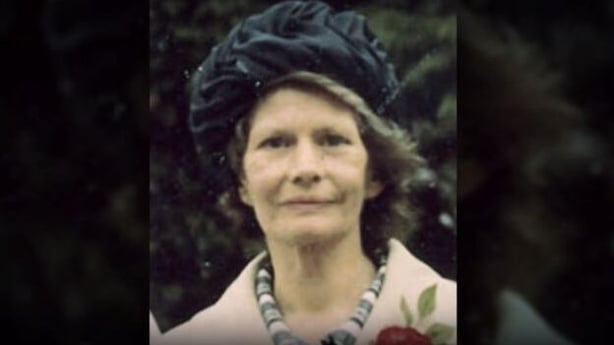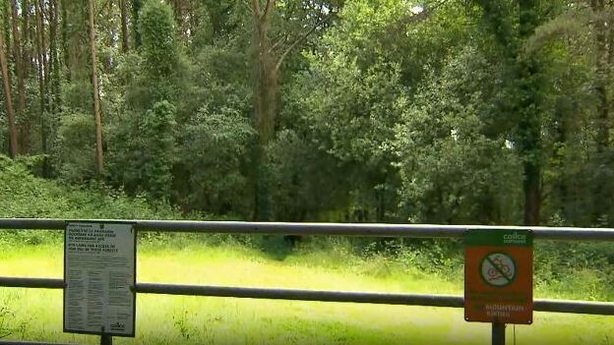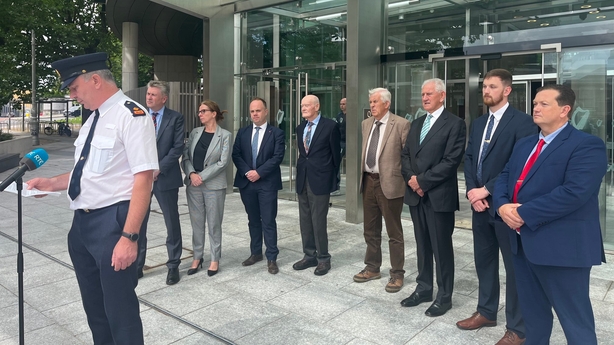The State has been successful in pursuing the oldest murder prosecution in Irish history with a jury finding a 74-year-old man guilty of murdering a woman in Cork 42 years ago.
The panel of seven men and four women unanimously accepted the prosecution case that Noel Long is guilty of murder.
The jury agreed with the State's case that the evidence in the trial all pointed to the "inescapable conclusion" that Nora Sheehan had met her death in June 1981 at the hands of Long.
A mandatory life sentence for murder was imposed on Long, which was backdated by four weeks.
The 11 jurors rejected the defence put forward by Long's legal team, who had argued that the State had failed to prove the intent required for murder and that in those circumstances, the most they could consider was a verdict of manslaughter.

Long, with an address at Maulbawn, Passage West, Co Cork, had pleaded not guilty to murdering 54-year-old Ms Sheehan between 6 June and 12 June 1981 at an unknown place within the State.
Her body was found by forestry workers at The Viewing Point, Shippool Woods in Cork, six days after she went missing.
The jurors today found Long guilty of murder by unanimous verdict after five hours and 32 minutes considering their verdict.
They had the option of returning three verdicts in relation to the murder charge against the defendant, namely; guilty of murder, not guilty of murder but guilty of manslaughter, or not guilty.

Following the murder verdict, Mr Justice Paul McDermott thanked the jurors for their service and application to the case. The judge exempted them from jury service for ten years.
The court heard during sentencing this afternoon that Long, a former British army soldier, has 31 previous convictions, including 27 in Ireland and four in the UK.
He had served 12 months in prison in Limerick after being convicted at Cork Circuit Criminal Court in December 1972 of what was then classified as an assault with intent to ravish.
The court heard he had been married with children at the time of Ms Sheehan's murder. He had since split with his wife and has been with his current partner for the last 25 years.
Pain carried through the generations
In a victim impact statement, read to the court by the prosecuting detective inspector and written by her granddaughter Katie, Ms Sheehan was described as a much-loved sister and mother to three precious boys.
She was described as a modern woman, ahead of her time, who worked at a psychiatric hospital bringing her country charm to patients there.
The family said pain, anxiety and stress had been inflicted on them and that this had carried through the generations.
The horrendous cause of Ms Sheehan's death had occupied their thoughts for 42 years and they said that her life had been taken in the cruellest of ways.
Two of Nora Sheehan's sons Jerry and James hold hands, as James’ daughter Katie speaks to media outside court, where she thanked the late pathologist who worked on case, and the many Gardaí and scientists. This is a day like no other. #norasheehan #justice #coldcasesolved #nora pic.twitter.com/bsggYWSmQS
— Barry Cummins / Barra O’Coimín (@barrycummins12) August 4, 2023
Ms Sheehan's father had been heartbroken and had died four years after she was taken from the family. They said no father should have to outlive or lose his child in such circumstances.
One of her three sons, James Jnr, had been newly married at the time of her death and should have been enjoying married bliss before this was taken away from him and his wife.
The family said they also thought of the seven grandchildren that Ms Sheehan did not get the chance to dote on and said she would have been a fun-loving granny to them.
For her sons, the statement said losing a mother when they were at such a young age had been incredibly difficult and to learn that their mother had been beaten and sexually assaulted was something they had struggled to process.
Over the last few decades, they said, they had suffered so much pain while the person responsible had lived his life without responsibility.
Some of the jury members returned to court to hear today's mandatory life sentence handed down by the trial judge.

Outside the Criminal Courts of Justice today, Katie Sheehan read a statement on behalf of the family.
She said they wished to remember the former pathologist Dr Robert Dermot Coakley, who had carried out a postmortem on Nora's body after she died.
The trial was told Dr Coakley had died just weeks later on 5 August 1981.
At the sentence hearing today, the court heard that the DPP had decided that this sudden death was an insurmountable obstacle to prosecuting Long.
Long had originally been arrested as a suspect on 16 June 1981 and charged with murder in July of that year, before he was released on bail.
One of the original prosecuting gardaí in this case who gave evidence in the current trial, retired detective inspector Colm Dardis, 86, was in court for the verdict, alongside other members of the prosecuting team.
Along with the delay of 42 years in getting justice, the trial had heard in excess of 280 exhibits had been lost over the years, something which the judge said would not normally happen.
The family also thanked a number of these retired gardaí, as well as the current prosecution team. They also thanked the scientists and staff, both current and retired, at Forensic Science Ireland.
They further thanked the investigation lead by Detective Inspector Eamonn Brady from Macroom Garda Station, as well as the Serious Crime Review Team and Senior Counsel Brendan Grehan SC and his colleagues who had prosecuted the case.
They also thanked witnesses, the jury and those in their local community for their support.
Proof cold cases can have "successful conclusion"
Speaking after today's conviction, Superintendent Joe Moore from Macroom Garda station thanked the Sheehan family and acknowledged their long 42-year wait for justice.
He also urged anyone else with evidence or knowledge of current cold cases to come forward.
Superintendent Moore said: "Nora Sheehan left her home on the 6th of June 1981 and her body was located at Shippool, Inishannon on the 12th of June 1981."
He added that a murder investigation had commenced on that date and had concluded today in August 2023.
He thanked the prosecution team and a number of witnesses who have now been retired for a long period of time.
He said the Serious Crime Review team had commenced a full review of this case in 2008 and that the current investigation team based in Bandon, County Cork had brought it to a point where a decision was made to prosecute.
Supt Moore said Forensic Science Ireland had assisted vastly in the advancement of forensic medicine and that An Garda Síochána would continue to investigate serious historical crime.
He added: "This case proves that historical crime can be brought to a successful conclusion, even after a prolonged period."
Supt Moore called for anyone with information in relation to a serious crime to please come forward and assist with any other cold cases that remain unsolved.






